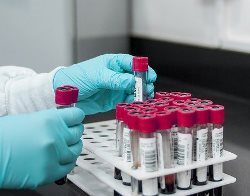| Bennington | Burlington | Colchester |
| Essex | Rutland | South Burlington |
It Takes Just a Few Minutes to Start Your Phlebotomy Career Below!
Phlebotomy Training, Licensing and Certification

There are primarily 2 types of programs that provide phlebotomist training, which are certificate and degree programs. The certificate program typically takes under a year to finish and provides a general education along with the training on how to draw blood. It provides the quickest route to becoming a phlebotomist. An Associate of Science Degree in Clinical Laboratory Science, although not exclusively a phlebotomy degree, will provide training to become a phlebotomist. Available at junior and community colleges, they usually require two years to complete. Bachelor's Degrees are not as accessible and as a four year program provide a more extensive background in lab sciences. After you have finished your training, you will no doubt want to become certified. Although not mandated in the majority of states, a number of Vermont employers look for certification prior to employing technicians. Some of the key certifying organizations include:
- National Phlebotomy Association
- National Healthcareer Association (NHA)
- American Society for Clinical Pathology (ASCP)
- American Medical Technologists (AMT)
There are some states that do require certification in order to practice as a phlebotomy tech, including Nevada and California. California and a handful of additional states even require licensing. So it's essential that you choose a phlebotomist training program that not only offers a premium education, but also preps you for any certification or licensing exams that you elect or are required to take.
Phlebotomist Online Colleges
 First, let's dispel one potential mistaken belief. You can't receive all of your phlebotomy training online. A good portion of the curriculum will be practical training and it will be conducted either in an on-campus lab or an approved healthcare facility. Many courses also require completing an internship prior to graduation. However since the non-practical portion of the training may be attended online, it may be a more convenient option for many Vermont students. As an added benefit, a number of online schools are less expensive than their on-campus counterparts. And some expenditures, for instance those for commuting or textbooks, may be lowered as well. Just verify that the online phlebotomy program you select is accredited by a national or regional accrediting agency (more on accreditation later). With both the comprehensive online and clinical training, you can obtain a quality education with this method of learning. If you are disciplined enough to study at home, then earning your degree or certificate online might be the right option for you.
First, let's dispel one potential mistaken belief. You can't receive all of your phlebotomy training online. A good portion of the curriculum will be practical training and it will be conducted either in an on-campus lab or an approved healthcare facility. Many courses also require completing an internship prior to graduation. However since the non-practical portion of the training may be attended online, it may be a more convenient option for many Vermont students. As an added benefit, a number of online schools are less expensive than their on-campus counterparts. And some expenditures, for instance those for commuting or textbooks, may be lowered as well. Just verify that the online phlebotomy program you select is accredited by a national or regional accrediting agency (more on accreditation later). With both the comprehensive online and clinical training, you can obtain a quality education with this method of learning. If you are disciplined enough to study at home, then earning your degree or certificate online might be the right option for you.
Get More Info on How to Become a Phlebotomist in Vermont
